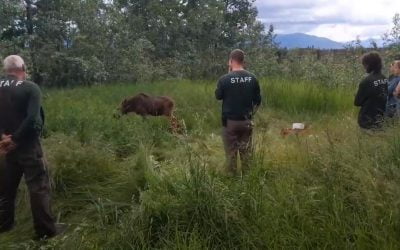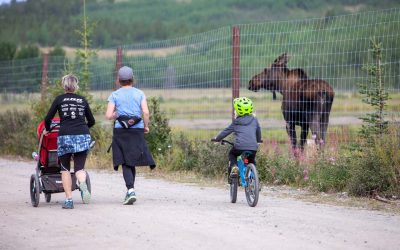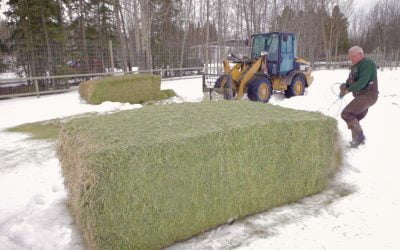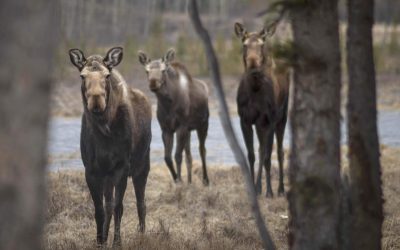Contents About the Preserve in 2019-20 President's Report Executive Director's Report Ex-Officio Report Master Plan Project Update Operations Report Animal Care Report Wildlife Rehabilitation Report Visitors Services Report Education and Programing Report More on...
Jake Paleczny Articles
Rehabilitation – A Wild Success
1 min video - This juvenile bald eagle came to the Wildlife Rehabilitation and Research Centre in early July after it was found near Icy Waters on Fish Lake road, seemingly flightless. An X-ray revealed an infection. Dr. Maria Hallock started the eagle on a course of...
Moose on the Move
3:47 video Our young orphaned moose has outgrown his room in the Preserve's Research and Rehabilitation Centre. Today he's on the move to a new - much larger - outdoor enclosure. He will spend the next few months in this larger space, with food to browse as he...
YWP to Reopen
The Yukon Wildlife Preserve re-opens to the public Monday June 1st, 2020. The Preserve closed March 23rd, 2020 for the safety and wellbeing of our animals, staff and visitors. The Preserve will be open daily from 10:30am to 5:30pm with modified services. As a large...
First Baby of Spring!
1.5 Min Video - Spring is for babies! Our first baby of 2020 is a Wood Bison, born Sunday, May 3. Executive Director, Jake, was in the right place at the right time with a spotting scope and camera to share this footage of the bison calf within its first hour of...
Wildlife Q&A
5 Min Video - We love finding out what makes kids curious! We asked kids to send us their video questions about the Preserve and Yukon’s wildlife. Watch the video to hear YWP staff answer: Do Caribou go in big groups? And if they do, how big of groups do they go...
Bison are BIG Eaters
3 min Video The Preserve's Wood Bison herd eats a lot of food! They're fed pellets and hay on a regular basis, but in summer they also graze through their38 acre habitat. Animal Care Staff feed the Bison two buckets of pellets every day once a day. Bison can run...
COVID Reponse
The Yukon Wildlife Preserve remains temporarily closed. But our team is hard at work providing top quality food and care to our 200+ animals. Without visitors to offset our ongoing costs of the daily care and feeding of these animals, your support is more critical now...
Swipe Right (for Antlers)
Only animals in the deer (or cervid) family grow antlers. That includes elk, deer, moose and caribou. Animals like Bison, Sheep and Goats are part of a different family and grow horns, not antlers. We’ll tackle that in another video/post! With the exception of...









